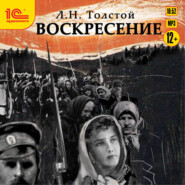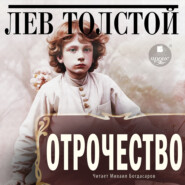По всем вопросам обращайтесь на: info@litportal.ru
(©) 2003-2024.
✖
Tolstoy on Shakespeare: A Critical Essay on Shakespeare
Настройки чтения
Размер шрифта
Высота строк
Поля
The rank and file always fare well before a battle.
"Oh, it's 'Tommy this' and 'Tommy that' an' 'Tommy, go away';
But it's 'Thank you, Mr. Atkins,' when the band begins to play."
I should like to add some instances from Shakespeare's works of serious and estimable behavior on the part of individuals representing the lower classes, or of considerate treatment of them on the part of their "betters," but I have been unable to find any, and the meager list must end here.
But to return to Tommy Atkins. He is no longer Mr. Atkins after the battle. Montjoy, the French herald, comes to the English king under a flag of truce and asks that they be permitted to bury their dead and
"Sort our nobles from our common men;
For many of our princes (wo the while!)
Lie drowned and soaked in mercenary blood;
So do our vulgar drench their peasant limbs
In blood of princes." (Henry V., Act 4, Sc. 7.)
With equal courtesy Richard III., on Bosworth field, speaks of his opponents to the gentlemen around him:
"Remember what you are to cope withal —
A sort of vagabonds, rascals, and runaways,
A scum of Bretagne and base lackey peasants."
(Act 5, Sc. 3.)
But Shakespeare does not limit such epithets to armies. Having, as we have seen, a poor opinion of the lower classes, taken man by man, he thinks, if anything, still worse of them taken en masse, and at his hands a crowd of plain workingmen fares worst of all. "Hempen home-spuns," Puck calls them, and again
"A crew of patches, rude mechanicals,
That work for bread upon Athenian stalls."
Bottom, their leader, is, according to Oberon, a "hateful fool," and according to Puck, the "shallowest thick-skin of that barren sort" (Midsummer Night's Dream, Act 3, Scs. 1 and 2, Act 4, Sc. 1). Bottom's advice to his players contains a small galaxy of compliments:
"In any case let Thisby have clean linen, and let not him that plays the lion pare his nails, for they shall hang out for the lion's claws. And, most dear actors, eat no onion or garlic, for we are to utter sweet breath, and I do not doubt to hear them say, it is a sweet comedy."
(Ib., Act 4, Sc. 2.)
The matter of the breath of the poor weighs upon Shakespeare and his characters. Cleopatra shudders at the thought that
"mechanic slaves,
With greasy aprons, rules and hammers, shall
Uplift us to the view; in their thick breaths
Rank of gross diet, shall we be enclouded,
And forced to drink their vapor."
(Antony and Cleopatra, Act 5, Sc. 2.)
Coriolanus has his sense of smell especially developed. He talks of the "stinking breaths" of the people (Act 2, Sc. 1), and in another place says:
"You common cry of curs, whose breath I hate
As reek of rotten fens, whose love I prize
As the dead carcasses of unburied men
That do corrupt the air, I banish you,"
and he goes on to taunt them with cowardice (Act 3, Sc. 3). They are the "mutable, rank-scented many" (Act 3, Sc. 1). His friend Menenius is equally complimentary to his fellow citizens. "You are they," says he,
"That make the air unwholesome, when you cast
Your stinking, greasy caps, in hooting at
Coriolanus's exile."
(Act 4, Sc. 7.)
And he laughs at the "apron-men" of Cominius and their "breath of garlic-eaters" (Act 4, Sc. 7). When Coriolanus is asked to address the people, he replies by saying: "Bid them wash their faces, and keep their teeth clean" (Act 2, Sc. 3). According to Shakespeare, the Roman populace had made no advance in cleanliness in the centuries between Coriolanus and Cæsar. Casca gives a vivid picture of the offer of the crown to Julius, and his rejection of it: "And still as he refused it the rabblement shouted, and clapped their chapped hands, and threw up their sweaty night-caps, and uttered such a deal of stinking breath, because Cæsar refused the crown, that it had almost choked Cæsar, for he swooned and fell down at it. And for mine own part I durst not laugh, for fear of opening my lips and receiving the bad air." And he calls them the "tag-rag people" (Julius Cæsar, Act 1, Sc. 2). The play of "Coriolanus" is a mine of insults to the people and it becomes tiresome to quote them. The hero calls them the "beast with many heads" (Act 4, Sc. 3), and again he says to the crowd:
"What's the matter, you dissentious rogues,
That rubbing the poor itch of your opinion
Make yourself scabs?
First Citizen. We have ever your good word.
Coriolanus. He that will give good words to ye will flatter
Beneath abhorring. What would you have, you curs,
That like not peace nor war? The one affrights you,
The other makes you proud. He that trusts to you,
Where he would find you lions, finds you hares;
Where foxes, geese; you are no surer, no,
Than is the coal of fire upon the ice,
Or hailstone in the sun. Your virtue is
To make him worthy whose offense subdues him,
And curse that justice did it. Who deserves greatness
Deserves your hate; and your affections are
A sick man's appetite, who desires most that
Which would increase his evil. He that depends
Upon your favors, swims with fins of lead,
And hews down oaks with rushes. Hang ye! Trust ye?
With every minute you do change a mind,
And call him noble that was now your hate,
Him vile that was your garland."
(Act 1, Sc. 1.)
His mother, Volumnia, is of like mind. She calls the people "our general louts" (Act 3, Sc. 2). She says to Junius Brutus, the tribune of the people:
"'Twas you incensed the rabble,
Cats, that can judge as fitly of his worth
As I can of those mysteries which Heaven
Will not leave Earth to know."
(Act 4, Sc. 2).
In the same play Cominius talks of the "dull tribunes" and "fusty plebeians" (Act 1, Sc. 9). Menenius calls them "beastly plebeians" (Act 2, Sc. 1), refers to their "multiplying spawn" (Act 2, Sc. 2), and says to the crowd:
"Rome and her rats are at the point of battle."
(Act 1, Sc. 2).
The dramatist makes the mob cringe before Coriolanus. When he appears, the stage directions show that the "citizens steal away." (Act 1, Sc. 1.)
As the Roman crowd of the time of Coriolanus is fickle, so is that of Cæsar's. Brutus and Antony sway them for and against his assassins with ease:
"Oh, it's 'Tommy this' and 'Tommy that' an' 'Tommy, go away';
But it's 'Thank you, Mr. Atkins,' when the band begins to play."
I should like to add some instances from Shakespeare's works of serious and estimable behavior on the part of individuals representing the lower classes, or of considerate treatment of them on the part of their "betters," but I have been unable to find any, and the meager list must end here.
But to return to Tommy Atkins. He is no longer Mr. Atkins after the battle. Montjoy, the French herald, comes to the English king under a flag of truce and asks that they be permitted to bury their dead and
"Sort our nobles from our common men;
For many of our princes (wo the while!)
Lie drowned and soaked in mercenary blood;
So do our vulgar drench their peasant limbs
In blood of princes." (Henry V., Act 4, Sc. 7.)
With equal courtesy Richard III., on Bosworth field, speaks of his opponents to the gentlemen around him:
"Remember what you are to cope withal —
A sort of vagabonds, rascals, and runaways,
A scum of Bretagne and base lackey peasants."
(Act 5, Sc. 3.)
But Shakespeare does not limit such epithets to armies. Having, as we have seen, a poor opinion of the lower classes, taken man by man, he thinks, if anything, still worse of them taken en masse, and at his hands a crowd of plain workingmen fares worst of all. "Hempen home-spuns," Puck calls them, and again
"A crew of patches, rude mechanicals,
That work for bread upon Athenian stalls."
Bottom, their leader, is, according to Oberon, a "hateful fool," and according to Puck, the "shallowest thick-skin of that barren sort" (Midsummer Night's Dream, Act 3, Scs. 1 and 2, Act 4, Sc. 1). Bottom's advice to his players contains a small galaxy of compliments:
"In any case let Thisby have clean linen, and let not him that plays the lion pare his nails, for they shall hang out for the lion's claws. And, most dear actors, eat no onion or garlic, for we are to utter sweet breath, and I do not doubt to hear them say, it is a sweet comedy."
(Ib., Act 4, Sc. 2.)
The matter of the breath of the poor weighs upon Shakespeare and his characters. Cleopatra shudders at the thought that
"mechanic slaves,
With greasy aprons, rules and hammers, shall
Uplift us to the view; in their thick breaths
Rank of gross diet, shall we be enclouded,
And forced to drink their vapor."
(Antony and Cleopatra, Act 5, Sc. 2.)
Coriolanus has his sense of smell especially developed. He talks of the "stinking breaths" of the people (Act 2, Sc. 1), and in another place says:
"You common cry of curs, whose breath I hate
As reek of rotten fens, whose love I prize
As the dead carcasses of unburied men
That do corrupt the air, I banish you,"
and he goes on to taunt them with cowardice (Act 3, Sc. 3). They are the "mutable, rank-scented many" (Act 3, Sc. 1). His friend Menenius is equally complimentary to his fellow citizens. "You are they," says he,
"That make the air unwholesome, when you cast
Your stinking, greasy caps, in hooting at
Coriolanus's exile."
(Act 4, Sc. 7.)
And he laughs at the "apron-men" of Cominius and their "breath of garlic-eaters" (Act 4, Sc. 7). When Coriolanus is asked to address the people, he replies by saying: "Bid them wash their faces, and keep their teeth clean" (Act 2, Sc. 3). According to Shakespeare, the Roman populace had made no advance in cleanliness in the centuries between Coriolanus and Cæsar. Casca gives a vivid picture of the offer of the crown to Julius, and his rejection of it: "And still as he refused it the rabblement shouted, and clapped their chapped hands, and threw up their sweaty night-caps, and uttered such a deal of stinking breath, because Cæsar refused the crown, that it had almost choked Cæsar, for he swooned and fell down at it. And for mine own part I durst not laugh, for fear of opening my lips and receiving the bad air." And he calls them the "tag-rag people" (Julius Cæsar, Act 1, Sc. 2). The play of "Coriolanus" is a mine of insults to the people and it becomes tiresome to quote them. The hero calls them the "beast with many heads" (Act 4, Sc. 3), and again he says to the crowd:
"What's the matter, you dissentious rogues,
That rubbing the poor itch of your opinion
Make yourself scabs?
First Citizen. We have ever your good word.
Coriolanus. He that will give good words to ye will flatter
Beneath abhorring. What would you have, you curs,
That like not peace nor war? The one affrights you,
The other makes you proud. He that trusts to you,
Where he would find you lions, finds you hares;
Where foxes, geese; you are no surer, no,
Than is the coal of fire upon the ice,
Or hailstone in the sun. Your virtue is
To make him worthy whose offense subdues him,
And curse that justice did it. Who deserves greatness
Deserves your hate; and your affections are
A sick man's appetite, who desires most that
Which would increase his evil. He that depends
Upon your favors, swims with fins of lead,
And hews down oaks with rushes. Hang ye! Trust ye?
With every minute you do change a mind,
And call him noble that was now your hate,
Him vile that was your garland."
(Act 1, Sc. 1.)
His mother, Volumnia, is of like mind. She calls the people "our general louts" (Act 3, Sc. 2). She says to Junius Brutus, the tribune of the people:
"'Twas you incensed the rabble,
Cats, that can judge as fitly of his worth
As I can of those mysteries which Heaven
Will not leave Earth to know."
(Act 4, Sc. 2).
In the same play Cominius talks of the "dull tribunes" and "fusty plebeians" (Act 1, Sc. 9). Menenius calls them "beastly plebeians" (Act 2, Sc. 1), refers to their "multiplying spawn" (Act 2, Sc. 2), and says to the crowd:
"Rome and her rats are at the point of battle."
(Act 1, Sc. 2).
The dramatist makes the mob cringe before Coriolanus. When he appears, the stage directions show that the "citizens steal away." (Act 1, Sc. 1.)
As the Roman crowd of the time of Coriolanus is fickle, so is that of Cæsar's. Brutus and Antony sway them for and against his assassins with ease:

















